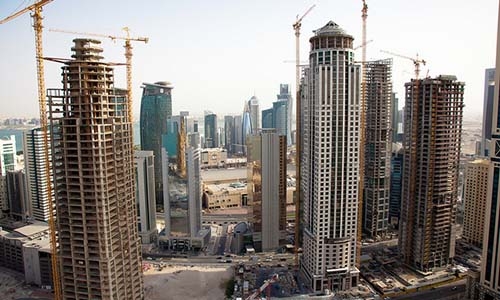Construction sector disputes to rise in Middle East: survey
Manama: Disputes between contractors and clients in construction sector in the Middle East will rise in the next 12 months, according to the capital projects and infrastructure survey conducted by PwC Middle East.
The survey respondents included over 130 industry participants from transport, cities and urban development, social infrastructure, mega events, and energy, utilities and mining. The survey was conducted in the period from October 2015 to March 2016.
About 62 per cent respondents in the survey, conducted among the industry participants, have been involved in a dispute. But the more troubling is the fact that most of them expect to be involved in disputes soon; if not already involved.
The difficult economic situation forcing project cancellation has been cited as the reason behind this pessimistic mood by the survey participants.
Number of disputes is similar to that in the earlier surveys and thus indicates that further pain will emerge in the coming months.
“What is perhaps surprising is that this figure is the same as in our last survey, when oil prices were still high driving large capital expenditure programmes. This probably indicates that full impact of clients changing the scope of projects due to budget cutbacks, and late payments to contractors has yet to fully work through the system.”
“We expect that the number of disputes will rise appreciably over the course of the next 12 months as the time lag of late payments increasingly creates problems for contractors, project consultants, and suppliers,” the report predicts.
The report also notes that governments in the region will be forced to seek more private participation for infrastructure development in coming years.
The survey respondents consider public private partnerships as effective for delivering projects on budget, on time and with more expertise.
“Private sector funding can undoubtedly play a more prominent role in funding infrastructure projects, particularly while government budgets are under pressure. This will also bring other benefits, including better project performance, and increase the incentives for delivering projects on time and on budget,” according to PwC.
But such a partnership will require a behavioural shift from the government and the industry. Governments will no longer be able to change the scope of contracts after the award and contractors will need to get more experienced at how to take on contracts that involve being responsible for the development, operation and managing the risk of a project over a 20-year contract, says the report.
Related Posts

